Canada’s ‘heat dome’ evacuees: Inside the makeshift shelters housing the latest victims of the climate crisis
An estimated 1,000 Lytton residents in British Columbia are estimated to have fled their homes due to the fires caused by soaring temperatures
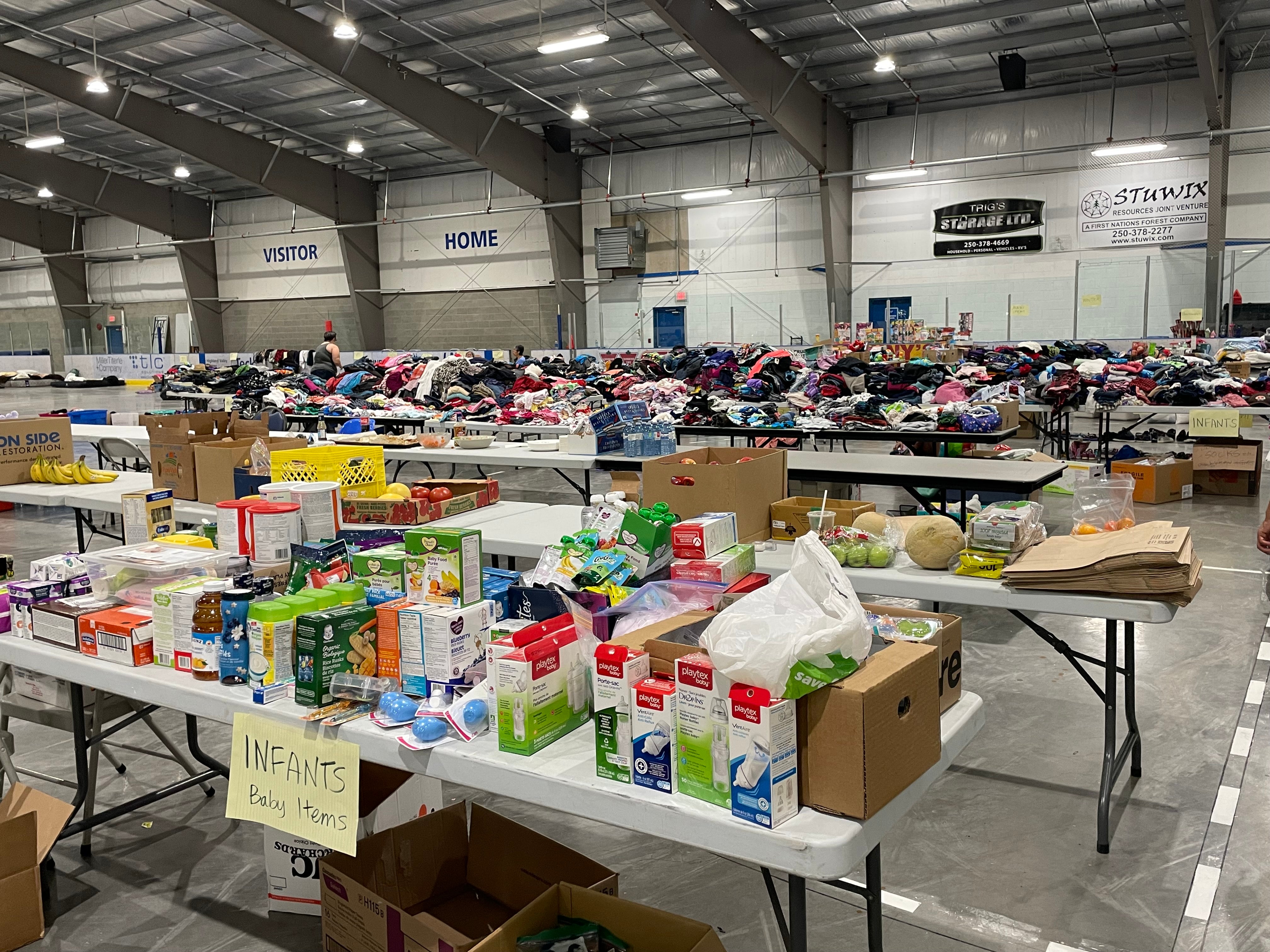
Your support helps us to tell the story
From reproductive rights to climate change to Big Tech, The Independent is on the ground when the story is developing. Whether it's investigating the financials of Elon Musk's pro-Trump PAC or producing our latest documentary, 'The A Word', which shines a light on the American women fighting for reproductive rights, we know how important it is to parse out the facts from the messaging.
At such a critical moment in US history, we need reporters on the ground. Your donation allows us to keep sending journalists to speak to both sides of the story.
The Independent is trusted by Americans across the entire political spectrum. And unlike many other quality news outlets, we choose not to lock Americans out of our reporting and analysis with paywalls. We believe quality journalism should be available to everyone, paid for by those who can afford it.
Your support makes all the difference.It’s not a scene visitors to Shulus Community Arena are accustomed to seeing.
Where the hockey rink typically sits, table upon table is piled high with clothes, food, hygiene products and other essential goods. Parts of the audience stands have been converted into a makeshift dormitory.
Dozens of people rifle through the donated goods in the middle of the rink, trying to find clothes that fit and food to feed their families. They leave with plastic bags stuffed full of rations for the next few days. Volunteers rush from table to table, re-stocking donations that are coming in from the community faster than they can dole them out.
A child cowers under a table laden with coats and hoodies, wailing loudly. “You need to come out,” his father hisses.
“But I don’t want to be here. I want to go home,” the child cries.
All the while, shell-shocked residents from fire-ravaged towns nearby wander in the front door, ready to register their status as evacuees.
For many escapees from the wildfires currently torching huge swathes of Canada’s British Columbia province, this converted ice hockey rink is their first experience of the small town of Merritt.
With a population of about 8,000 people, Merritt sits 100 kilometres east of Lytton, the village that was razed to the ground by wildfires earlier this week, just days after it broke the record for Canada’s all-time highest temperature for three days in a row, reaching 121.1F (49.5C).
Meteorologists say the unprecedented conditions are being caused by a “heat dome” over western Canada and parts of the US Pacific northwest.
A heat dome is an unofficial term given to an area of hot air high up in the atmosphere which lingers over an area for a prolonged period of time, trapping in heat below.
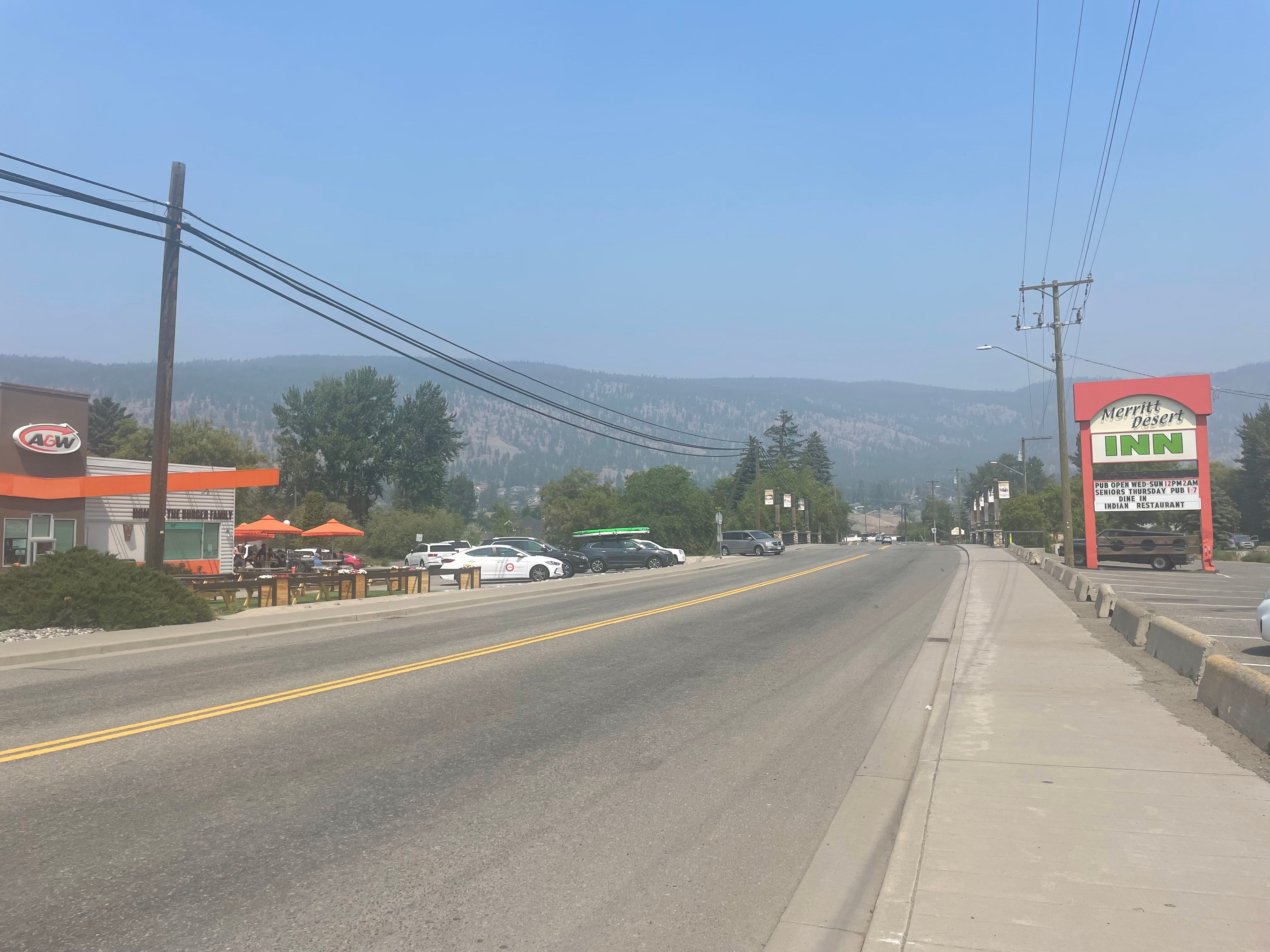
An estimated 1,000 Lytton residents, and dozens more from neighbouring communities now threatened with other wildfires raging across BC, are estimated to have fled their homes due to the fires. Merritt was the first port of call for many of them.
All the hotels are now full, as are many others in a two-hour radius. Evacuees who weren’t able to be allocated a hotel room (many were already at capacity as it’s a holiday weekend in Canada) are staying in tents on people’s lawns, at crisis centres set up in town, or with friends and family. Merritt is currently shrouded in thick smoke from the fires nearby, its domineering mountain backdrop barely visible through the haze.
Daniel McKay arrived at Shulus on Thursday, having fled Lytton with his son and daughter as the fire consumed the town, escaping to the nearby town of Lillooet. His home was one of the few that was spared from the flames. After a night in Lillooet, the family was given a $25 fuel voucher and was told to move on to Merritt due to the smoke from the nearby fires that was enveloping the town. He took up residence in the hockey rink with his family, and thinks he will be there for the next five days at least, or until he can return home. Mr McKay has lived in Lytton his entire life. He says this is the worst wildfire he’s ever seen.
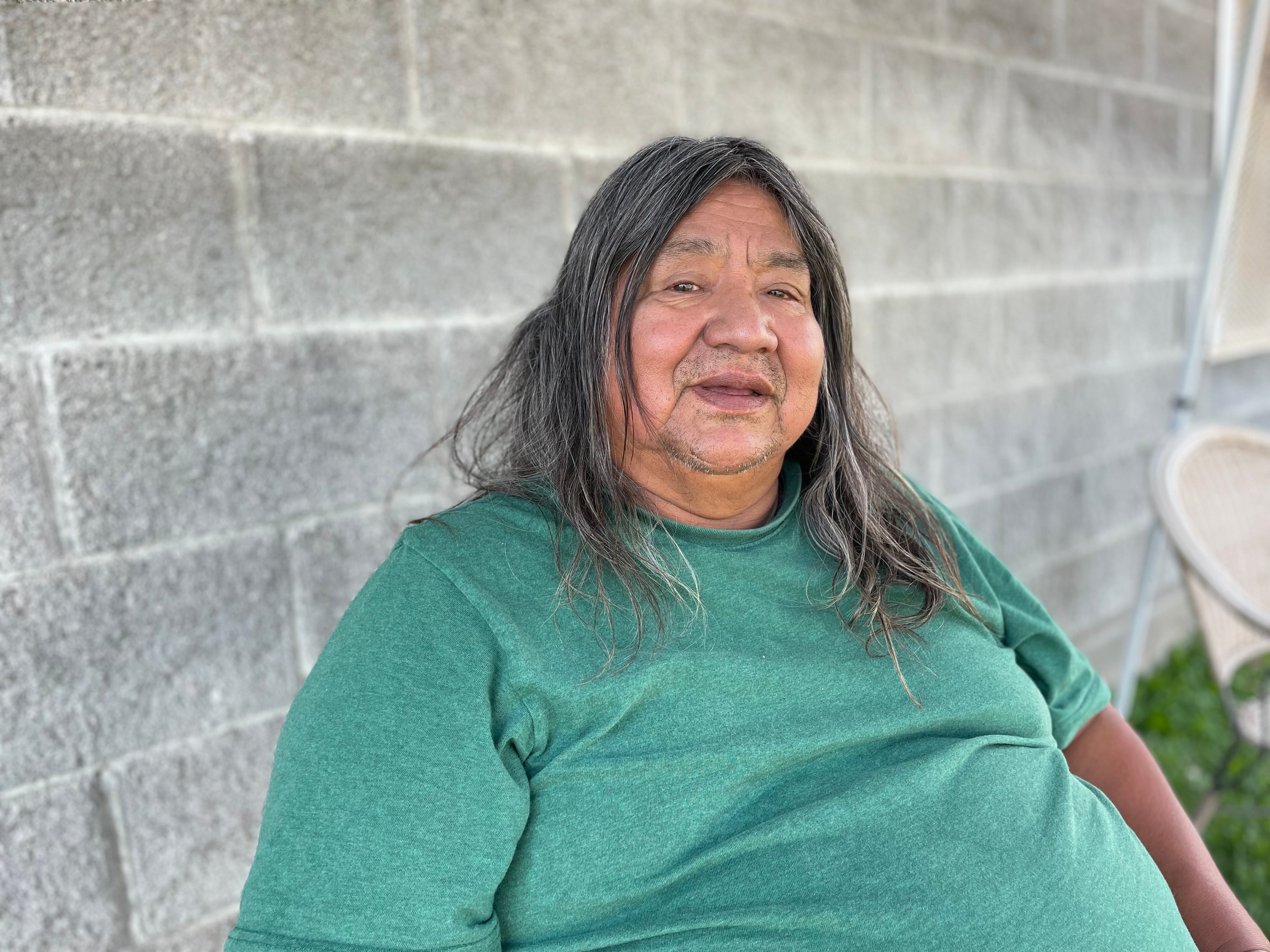
Heather Crozier, a volunteer at the arena, said about 250 fire evacuees had been helped at the centre so far.
She said truckloads of donations had been arriving from around the area since Wednesday. The centre now had more resources than they could handle.
“We have people walking in off the street wanting to volunteer. They’re from Merritt, and other people who have have driven from other communities who want to come and volunteer to as well. They work for a couple of hours and leave. It’s incredible, I don’t even know how many volunteers we have anymore,” Crozier says.
Another temporary evacuation centre had been set up in the centre of town, at Merritt’s civic centre. Camp stretchers were set up inside in rows for those with nowhere else to turn.
Greg Lowis, public information officer at the city of Merritt, says the centre was set up at 8pm on Wednesday night, two hours after Lytton was issued an evacuation order, and by 11.30pm the first evacuees had arrived. Since then, 139 people had come in to register their evacuation. About 40 evacuees were still staying in Merritt as of Saturday. One of their biggest obstacles in helping people has been the fact the town doesn’t have much in way of long-term accommodation, and the hotels and motels were already full due to the long weekend.
“The unfortunate reality of life in Merritt is we do have a 0 per cent vacancy rate for long term rentals,” Mr Lowis says.
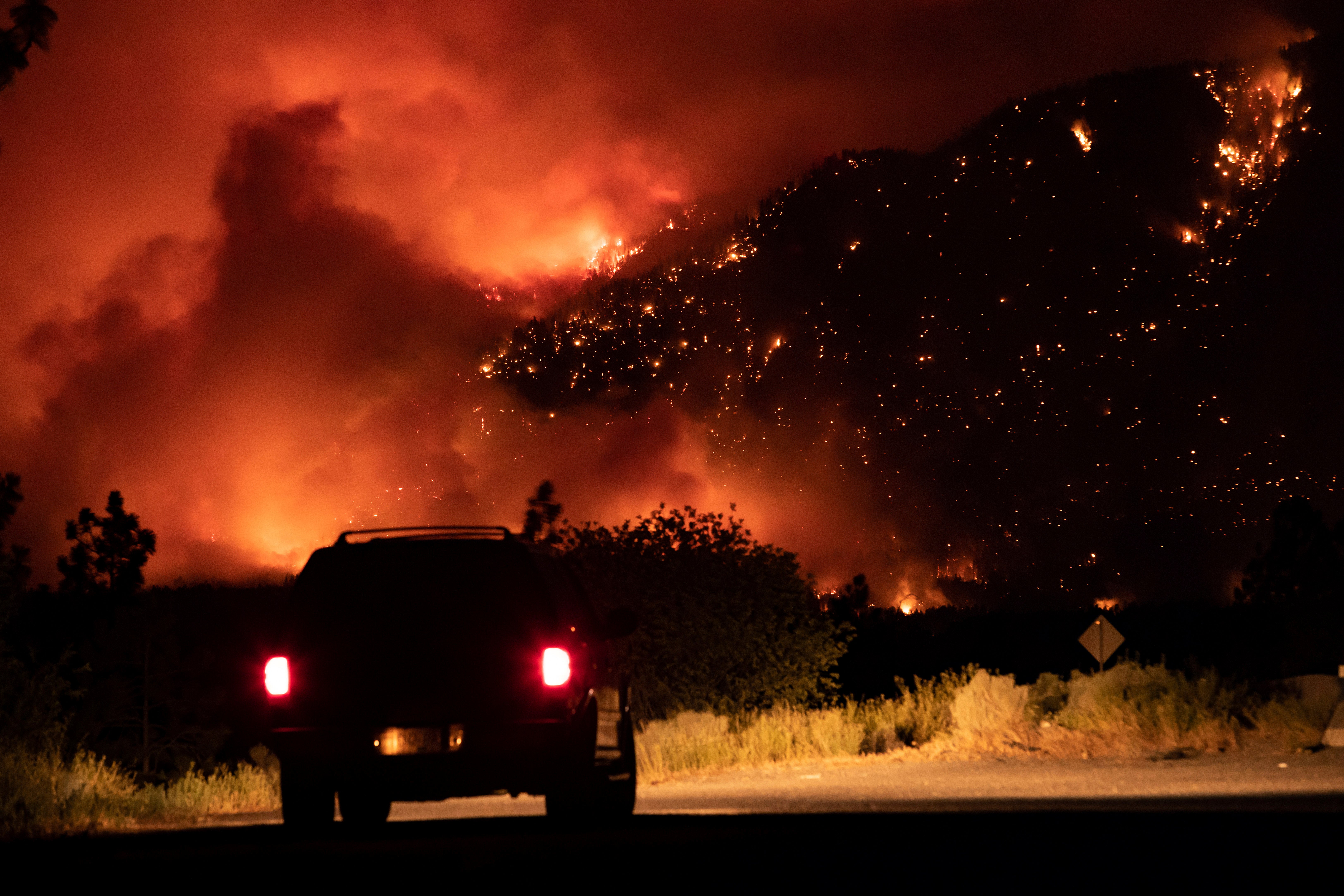
“It’s been a historic problem with BC housing, really. Development is just not keeping up with the demand and growth.”
As evacuees currently only had accommodation assistance for seven days, Mr Lowis and his team were now working out what their longterm solution will be for Lytton residents who have no home to return to. They don’t have an answer yet.
He says that while the town generally sweltered during the summer, the recent temperatures caught everyone off guard.
“It’s not that uncommon in Merritt to see a day or a week over 40 degrees. But we’ve never before had 42, 43, 43, 42 like that, and particularly not this early in the year. So it was something that we weren’t expecting this early. But obviously we do have wildfires on a fairly regular basis so we are fairly well experienced in dealing with evacuations.”
The centre will remain up and running for the time being, due to the ongoing threat of wildfire evacuations in nearby towns – one of the most concerning of which is several centred around Durand Lake, which forced the evacuation of 166 properties on Friday night.
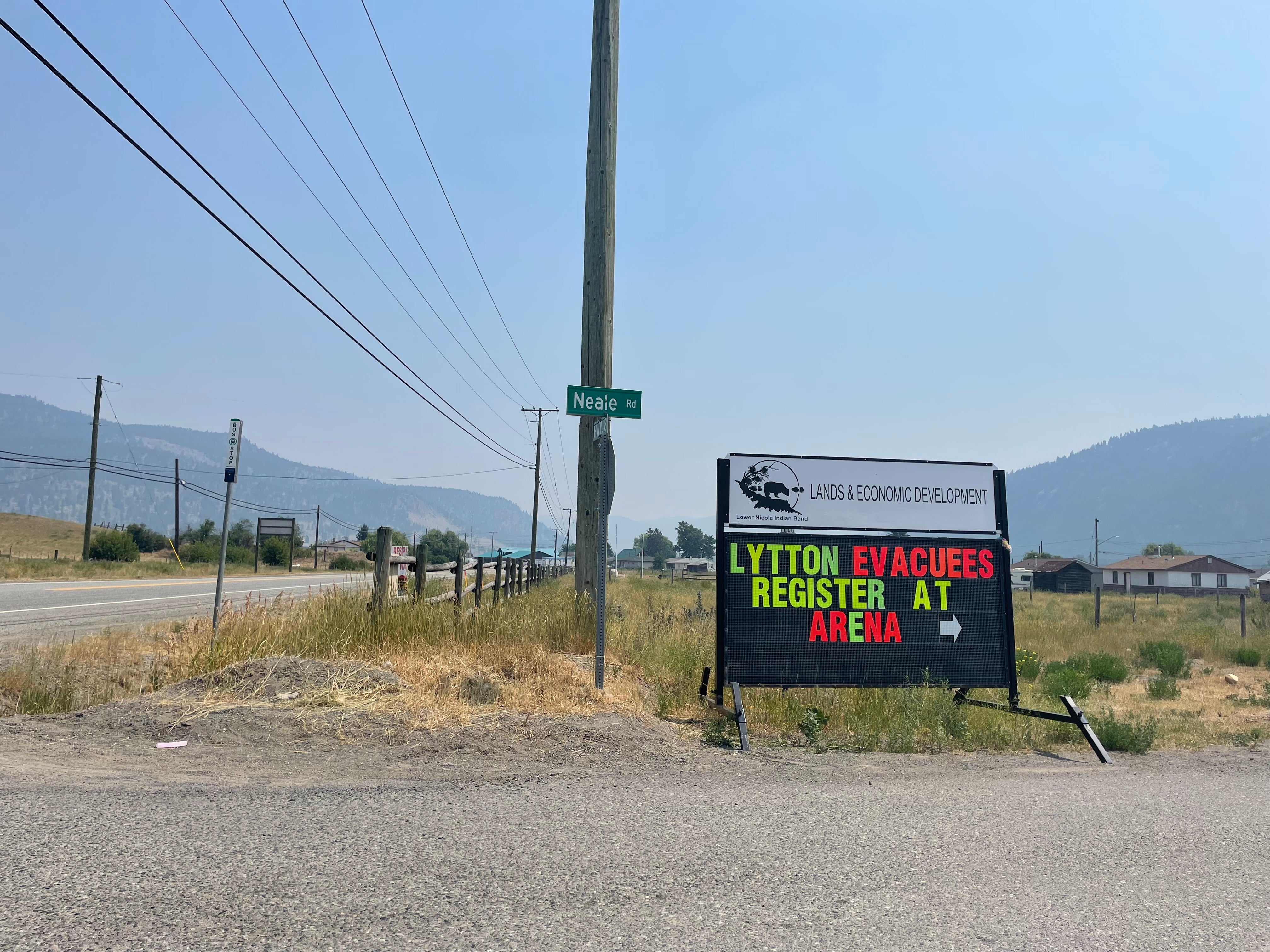
It was these fires that forced Cara Haywood-Farmer to evacuate twice in as many days. Ms Haywood-Farmer is in her third trimester of pregnancy and has two children, aged two and five. Her husband had remained behind at their ranch, in the Deadman Valley, when Ms Haywood-Farmer and her children fled to the nearby area of Tunkwa, where her in-laws live, as fires closed in on their farm.
“It’s been very stressful. We have a lot of animals out there, a lot of cattle,” she says.
“We found a bunch of them. But not all, and we won’t know until the fires are completely out where they all are. The ranch below us has had some confirmed loss of livestock.”
On Friday, the family were evacuated from Tunkwa due to the encroaching fires, so they had moved on to Merritt to stay with Ms Haywood-Farmer’s parents.
She was one of about a dozen people who was registering at the civic centre on Saturday afternoon.
Merritt city councillor Mike Bhangu said the town had only been able to handle the influx of evacuees because of their “incredible staff”, many of whom were volunteers and working from early morning until late at night.
And while the generosity of the general public had been appreciated, the city was now actively discouraging donations as they had received too much.
“We don’t have the space physically for all the donations come in,” he says.
“It makes my heart glow, the attitude of British Columbians in a time of need, they band together.”
Join our commenting forum
Join thought-provoking conversations, follow other Independent readers and see their replies
Comments